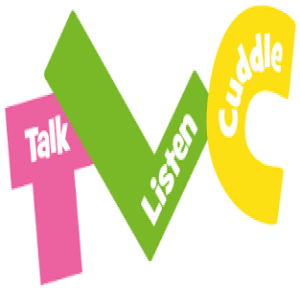Episodes

Monday May 20, 2019
Choose Natural Consequence
Monday May 20, 2019
Monday May 20, 2019
The prize vase is broken. Could the accident have been avoided? Probably. Was the vase broken on purpose? Probably not. Does your son need to learn the lesson to be more careful? Absolutely. Now, your job as parent is to construct circumstances where that lesson will be learned and appreciated. If you choose punishment as your lesson-learning tool, your child may become more careful, but out of fear of further beatings. If you choose natural consequence as your lesson-learning tool, your child will also become more careful, but out of love and healthy relationship, understanding the cost and impact of his not being careful. Use active listening to calm his emotional fever around the accident. Then ask questions that will prompt his thinking about what he needs to do to make things right again. When in doubt, always choose natural consequence over punishment.

Saturday May 18, 2019
Bed Time Can Be The Best Time
Saturday May 18, 2019
Saturday May 18, 2019
If getting your child to bed is World War III, how's that working for you? Bedtime can be the best time with your child, depending on how you structure it. Give her some settle down time, where she can transition from the day to snuggling in bed. This is where you talk about your days, read stories, sing lullabys, and get all of the stall tactics out of the way. After settle down time, consider using what I call the "Snuggle Bunny," as a calming technique. Structuring your child's bedtime in this manner will help convert it from a battle zone to the best...time...ever, for both of you.

Thursday May 16, 2019
Getting What You Want from Parenting
Thursday May 16, 2019
Thursday May 16, 2019
As parents, we all are faced with a parenting choice. Do we want power over our children? Or do we want relationship with out children? Don't confuse power with authority. As mom and dad, you always have authority. The question is about how you use it. You can use power, by yelling, spanking, and exercising other forms of discipline. Power gets you compliance, but at the expense of relationship. Do you really want your child to fear you? When you choose relationship, you use active listening to understand what your child was thinking and feeling at the time of the problem. You help him understand the impact of his actions on himself and others. You may decide on a natural consequence to his inappropriate words or actions. In doing these things, you likely keep the relationship intact. When you want relationship, you get love and understanding.

Tuesday May 14, 2019
Helping Your Children Get Along
Tuesday May 14, 2019
Tuesday May 14, 2019
Sometimes chaos just breaks out and you have to go into crisis mode. When your children aren't getting along, what to do? Each of your children is precious to you and you love each uniquely, but you still have to maintain order and keep them from killing each other. Several steps in the process are important. Separate for each (and you) to cool down. Active listen each child's emotional fever without judgment or blaming. Levy appropriate natural consequences, and moderate their talk with each other about how to avoid such conflict in the future. This process is a great way to help your kids get along.

Sunday May 12, 2019
Mission Accomplished, Teen to Adult
Sunday May 12, 2019
Sunday May 12, 2019
A space launch is a great metaphor for shepherding your teen into adulthood. The journey begins at birth, and you will always be his mom and dad, but letting go helps your teen launch into adulthood. You and extended family are part of his launch crew. The lessons you have shared with him along the way, the teachable moments, are all part of his training for mission. As he leaves Earth's atmosphere (your home) and ventures into outer space (the real world), he will have occasional mid-course corrections to reach his target destination. This is where your wise counsel guides him. It's his life now, so be careful not to give advice, but rather to ask for permission to share your perspective. This is your consultative stage of parenting. As you beam with pride for the young person your teen has become, it's mission accomplished.

Friday May 10, 2019
Promoting Positive Attention
Friday May 10, 2019
Friday May 10, 2019
Your kids will get your attention, one way or another. Sadly, negative attention is often easier to get. It's more immediate and all-consuming. Punch your sister when she's not playing fair? Mom will be on you like white on rice. Positive attention usually takes longer and can be set aside with a brief response. Come home with good grades and showing mom? "That's nice, honey," as she continues on the phone with her friend. So, the key is that what you pay attention to grows. If you want to give your child more positive attention, make a bigger deal of it to her and to others in her earshot. Because attention has an absolute quality, the more positive attention you give her, the less negative attention she will seek. Promote positive attention with your kids.

Wednesday May 08, 2019
Lying Can Double the Trouble
Wednesday May 08, 2019
Wednesday May 08, 2019
"Okay! Who made this mess?" Your question is met with a chorus of "not me's" When and how do you get to the truth? First, how important is the mess? If it directly affects you in the moment, then it needs to be straightened first. Deal with the lying later. Whatever the timing, when confronting the Not Me-er, make sure you child understands his choices. If he messed up and owns it, you have a teachable moment. You active listen his upset, ask permission to offer counsel, and help him with corrective steps. He may also get a consequence for his actions. If he messes up and lies about it by saying "I didn't do that," confirm the infraction independently, and then give two consequences, one for the mess up an one for lying about it. Lying can double the trouble.

Monday May 06, 2019
Part of Being a Family
Monday May 06, 2019
Monday May 06, 2019
Everybody who says, "yaay. We get to do household chores today," raise your hand. I didn't think so. And yet, all families have chores to do. The saying "more hands, less work" is true. Also, we parents need to get our kids involved to help teach them order, cleanliness, organization, and accountability. Help younger children until they get the hang of it. Assign older children according to their abilities and age. Active listen the griping, but persist. It's one of those "you'll thank me later" moments where you are preparing your child to be an adult, in a meaningful relationship, and passing blessings on to their children. Doing chores are both part of being a family and chock full of teachable moments.

Saturday May 04, 2019
Worry Much?
Saturday May 04, 2019
Saturday May 04, 2019
Worrying is unavoidable. Productively, it helps us prepare for upcoming events. Worry also comes in two forms, constructive worry and destructive worry. It's about a 20/80 split. Wow! Almost 80% of our worry time is destructive. That's the stuff over which we have no control. Thermonuclear war? Girlfriend liking somebody else? Teacher's mood? Not much we can do about these and other things. When your worry is destructive, give it up. Deep breaths, prayer, distractions. Vocab test tomorrow? Getting everything on your to do list done? Staying in shape? These are matters of constructive worry. Think about each and decide what you can actively do to ease your worry and generate confidence, commitment, and completion. If you worry too much, you are probably putting your worry time on destructive worry. Determine what you have control over and use constructive worry to take care of it.

Thursday May 02, 2019
You matter too!
Thursday May 02, 2019
Thursday May 02, 2019
Being a parent is always a 24-7-365 opportunity. But, it's impossible for you to be there for your child, in a high quality way, if you are not there for yourself. Taking time to understand your wants and needs and to nurture your own feelings puts you on top of your game when you are there for your kids. In the Bible, Matthew 22:39, Jesus taught that the only two rules we have to follow are to "love your God completely, and love yourself as you love others." Loving yourself means making time for you. Quiet time. Devotional time. Alone time. Schedule these times when child care is minimal, such as before the kids get up or after they go to bed. Schedule these times also when the cavalry is available and you can be "off duty." Not only are you re-energizing for the long parenting haul, but you are also modeling for your kids their abilities to understand their needs and feelings and to take care of themselves. That's a profound teachable moment.

